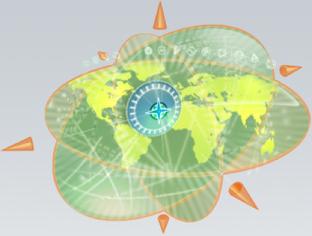Metaverse Roadmap Report
 After months of work, the Metaverse Roadmap Overview is now available for download; get it here as a PDF. Written by Jerry Paffendorf, John Smart and me, the Overview is the end-result of the first Metaverse Roadmap project meeting, in May of 2006. It's not simply a summary of the meeting, however -- rather, it's the first attempt to synthesize current and emerging social, economic and technological trends around virtual worlds, immersive networks, and ubiquitous information.
After months of work, the Metaverse Roadmap Overview is now available for download; get it here as a PDF. Written by Jerry Paffendorf, John Smart and me, the Overview is the end-result of the first Metaverse Roadmap project meeting, in May of 2006. It's not simply a summary of the meeting, however -- rather, it's the first attempt to synthesize current and emerging social, economic and technological trends around virtual worlds, immersive networks, and ubiquitous information.
The Overview looks at four different ways in which the Metaverse can manifest (as first mentioned here in April), but emphasizes that these are four perspectives, not four wholly-different worlds. (Once again, I'll recommend checking out Wade Roush's excellent article "Second Earth" in the July/August issue of Technology Review for further elaboration of these ideas.) This is a very futures-focused work, and tries not to be too blinded by the current state of immersive technologies, nor too influenced by current popular systems. We make a concerted effort to examine a wide variety of implications, and to position the Metaverse technologies in the broader context of human interests:
Our scenarios will be influenced by all of the broader concerns facing the planet. Ethnic strife, political instability and war, energy, water, and other resource issues, trade, globalization, economic growth and poverty, environmental degradation and sustainability initiatives, migration, scientific and engineering advances, education and the media, ancient drives for intimacy, individuation, and spirituality, our emerging digital and participatory culture, unknown surprises and catastrophes, all of these and more will shape the technology development and adoption choices in tomorrow’s Metaverse.Most importantly for each of us, at this pivotal moment in human history, there are unique opportunities for enlightened corporate, political, and social leadership in Metaverse exploration and development. We propose that the best use of the Metaverse Scenarios and Inputs in this inaugural roadmap is not simply to consider them for near-term economic potential, but to ask how these technologies might help or hinder our ability to manage humanity’s larger concerns, both now and in the future. How might we use the various forms of the Metaverse to guide our response to global warming, and the emergence of “climate neutral” energy and transportation? How might we use these systems to avert a war, improve an election, reduce crime and poverty, or put an end to human rights abuses? How might we use the Metaverse, in the words of Jonas Salk, to become "good ancestors" to our descendants?
But that doesn't mean that it's all hand-waving, big picture meta-theory: there's abundant, detailed consideration of new technological forms and their implications. Various sections examine Relationships and Identity, Information and Education, Transparency and Political Power, Information Shadows, Leadership and Competition, Reputation, Privacy and Control, Integration and Acceptance, and Technological Viability. While detailed and dense, it's also a fairly fun read. The document is heavily-illustrated, with images showing both present-day implementation of these Metaverse tools, and conceptual models of future systems..
I have to say that this document ended up being better than I had expected by late in the creative process. It's rare that multiple authors editing and re-editing each other can come up with something that is neither too bland or too inconsistent. At the same time, this is clearly a first pass, an initial attempt to bring together disparate technological trends and think about the way they intersect.
The goal of the Metaverse Roadmap Overview isn't to predict, but to provoke, and I believe it does so well. I would, of course, greatly appreciate any feedback you wish to offer, either here or added to the Metaverse Roadmap wiki.






Comments
I'd like to congratulate you guys on a job well done. For a decidedly complex issue-area, the Roadmap is clear and highly accessible.
I thought the two Augmentation-oriented scenarios were particularly interesting, as - in my experience - such concepts seem to have evaded 'mainstream' futurism, fiction and the media, in favour of the Simulation-type predictions.
Also, perhaps another axis for the scenario grid could have been something like Open / Closed or Network / Hierarchy? Don't know how that would have panned out (possibly too political for your remit), but it's a thought I had. To me, questions of access and the 'layering' of services seem pertinent.
Posted by: Justin | June 27, 2007 2:39 AM
What will be the next step for the project?
Posted by: Howard Berkey | June 30, 2007 11:24 AM
What is the next step for the project?
Posted by: Howard Berkey | June 30, 2007 12:40 PM
Well, after getting comments back on this, the likely next step is to start assembling version 2.0.
Posted by: Jamais Cascio | June 30, 2007 12:49 PM
Well, I'm still digging into it, but it is certainly living up to what I anticipated. It feels like it would be nearly ideal raw material for some initial scenario tag networks.
Posted by: John the Statistician | July 2, 2007 8:11 PM
You should check out the first few episodes of Dennou Coil when you get a chance, if you haven't seen it.
Posted by: Michael Anissimov | August 19, 2008 6:26 PM